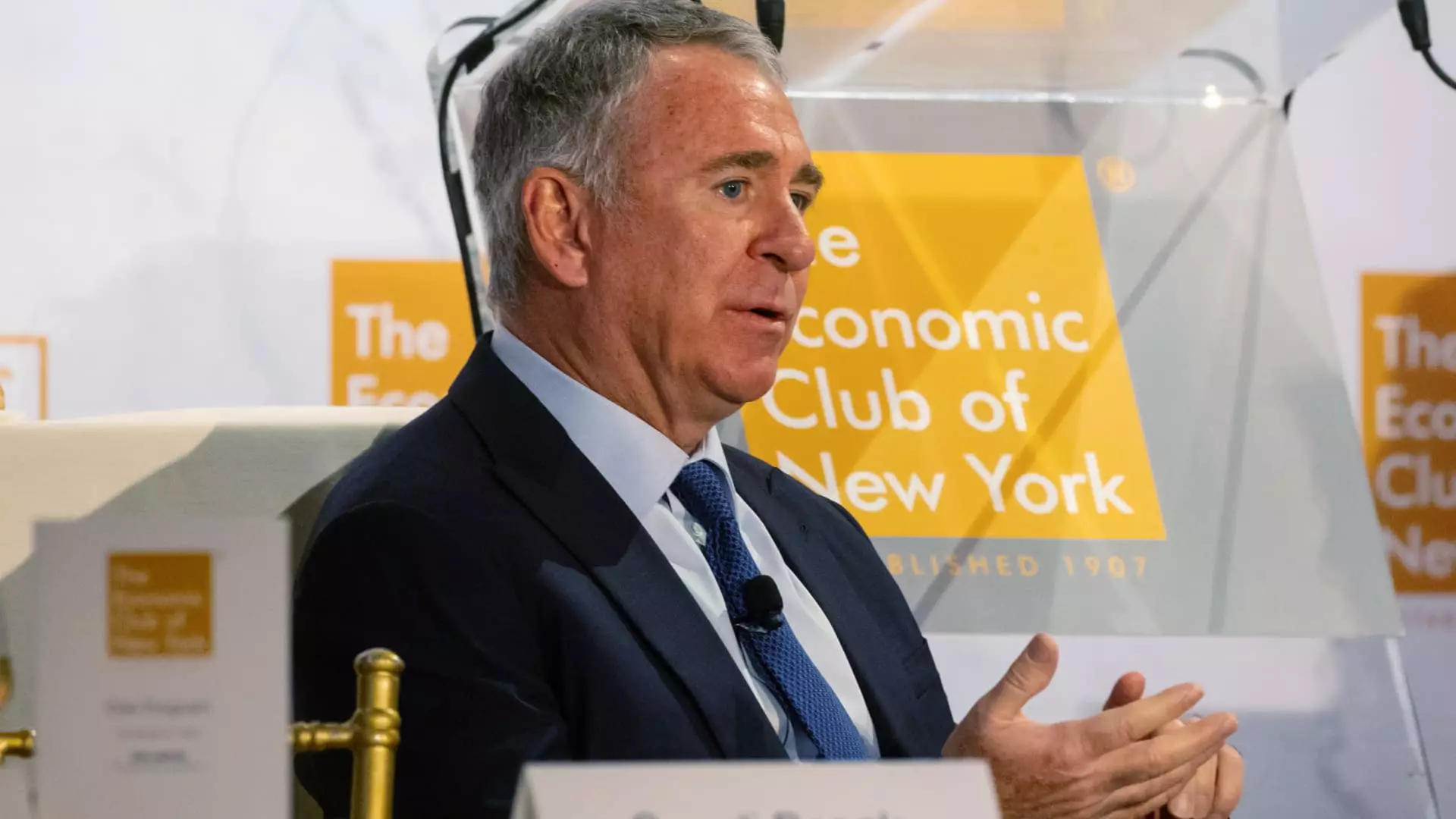In a stark warning to the American business community, Citadel CEO Ken Griffin voiced his concerns regarding the potential implementation of steep tariffs proposed by President-elect Donald Trump. At a recent gathering at the Economic Club of New York, Griffin articulated a significant threat that these tariffs pose: a shift towards crony capitalism. This economic system, characterized by preferential relationships between businesses and government officials, could emerge as a direct result of protectionist policies. Griffin’s insights invite a deeper examination of how tariffs can contradict the very principles of a competitive economy.
While Griffin acknowledged that domestic firms might experience a temporary advantage due to reduced competition, he cautioned against the long-term ramifications of such protectionist measures. In the initial stages, companies may revel in the absence of foreign rivals, enjoying what Griffin metaphorically described as a “sugar rush.” However, this fleeting boost can lead to complacency. As firms bask in their temporary market dominance, they risk neglecting innovation and productivity, ultimately jeopardizing their competitiveness on the global stage. This complacency not only threatens the businesses themselves but can also detract from fulfilling consumer needs—an essential component of any thriving economy.
Griffin further elaborated on the broader economic implications of Trump’s proposed tariffs. He emphasized that universal tariffs could elevate production costs, subsequently inflating consumer prices as the country grapples with the aftermath of pandemic-driven inflation. For many Americans, this could mean higher costs of living just as the economy strives for recovery. The reliance on tariffs to shield inefficient businesses from competition could foster a culture of dependency, hampering innovation and leading to stagnation in key sectors.
One of the most alarming aspects Griffin highlighted was the inevitable influx of lobbying efforts from special interest groups looking to sustain or even elevate tariff levels. Such dynamics could further entrench crony capitalism, as firms vie for government favor rather than improving their own operations to compete effectively. Griffin’s prediction offers a chilling vision of Washington, where policy decisions might become increasingly influenced by business interests rather than the broader economic welfare of the American populace.
On a different note, Griffin also shared Citadel’s commitment to private market strategies, distancing his firm from a potential public offering in the short term. Citing the benefits of maintaining a private status during periods of rapid growth, Griffin’s remarks provided a glimpse into Citadel’s philosophy: prioritizing sustainable development over short-lived financial gains. By investing in their future without the pressures of public scrutiny, Citadel appears to align its practices with the values of innovation and resilience.
Ken Griffin’s insights illuminate the delicate balance between protecting domestic industries and fostering a competitive environment conducive to consumer needs and innovation. As America navigates these turbulent economic waters, the potential risks associated with protectionism beckon critical discussions about the future of capitalism in the country.


Leave a Reply